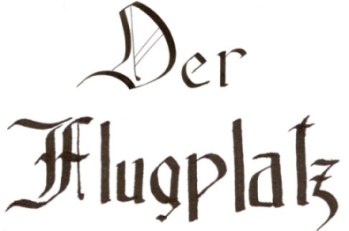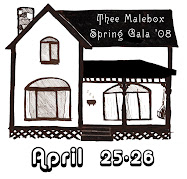First of all, I'm in desperate need of affordable computer help. I just put in an ATI 9800 Pro card, and a Zalman HSF. Both items they replaced were giving me serious overheating issues, so I finally bit the bullet and dished out close to $100 for some new stuff. Unfortunately, I now have some mystery issue: The system will start up and run fine for about 10-15 minutes, then just freeze up regardless of what I'm doing. Hitting the restart button will begin the startup process, then it will freeze before getting to Windows. Give it a few minutes after powering off, and I can start the whole process over again. Agony. If you have any suggestions or know of anyone who might, I'd be extremely grateful.
Secondly, while filling my mug of milk with chocolate syrup this evening, the word "Going" distinctly appeared from the thin lines of cocoa, written in a kind of little kid cursive. Interpretations of this vision are also welcome.
Saturday, January 27, 2007
Plea
Thursday, January 18, 2007
Bolos and Bugouts
I just signed up for Military Science 280, Raider Operations, which is basically a scaled down version of the Army's Best Ranger Competition. From 6:00 pm March 9th until 6:00 pm the next day,
Mo Sabbath
Preface to the Post: The Bible as Literature, English 375 at the
Comments here are always welcomed and looked forward to, and I’d like to extend a special request for this post as I feel that I wasn’t really able to clearly articulate what I saw in the text, or maybe presented it in a way that makes one think "So what?" Thoughts?
Sunday, January 14, 2007
What Does Legalism Say About the Regenerate Christian?
The sermon at All Souls this morning dealt with the issue of Grace versus Law. Not an unusual topic at all, in fact, one that we’ve probably all heard a good deal about in various circles. “We’re not under Law, we’re under Grace” seems to be a kind of Christian battle cry that folks will declare with pride sometimes while in the deepest of sin. The folly here is obvious, treating the gift of Grace like a free pass to do whatever you want.
So that’s legalism as it occurred 2000 years ago. What does legalism now, after thousands of years of meditating on Christ’s words, have to say about how we view the saved soul? Well, it doesn’t think very highly of it. Laws imposed on Christians today seem to be screaming “Unless we’re here, you’ll jump into and wallow in all manner of godlessness, debauchery and filth. We’re the only thing keeping your salvation and soul afloat!” Telling an adult that they cannot drink alcohol because of the possibility of sin is to say that this person, changed from darkness to light by Jesus Christ, is incapable of moderation. Basically, he’s still the same animal he was before the God of the Universe changed him, except that now he chooses to drink Sprite instead of a gin and tonic. One might argue in this particular case for the sake of the younger brother who may stumble into sin through seeing someone he respects consuming a drink. The same reprimand applies to them, as they are simply following the Law of “doing whatever my elders do.” In the same way that the thief waits for the laws against burglary to be lifted, the child who wants to cuss SO badly can’t wait for his father or big brother to let one slip. They don’t want to be righteous, they just want a good excuse for not being so.
Saturday, January 13, 2007
Hark!

Our good friend Sufjan Stevens released a five-volume Christmas album a little before the season this past year. Thanks to the lovely Miss Ballard, I now find it on my mind and in my ears almost nonstop.
Boasting 42 songs, the album is a mix of classical Christmas hymns, Sufjan originals, and hymns that are not typically associated with Christ's birth. Most of the originals sound like something elves would sing rather than angels, and the strength of the album definitely lies in Sufjan's renditions of the classics. The secret? Don't change much.
Recorded in 2001 apparently in and around the time he was working on Enjoy Your Rabbit and
Hilarity
"Wearing wimpy on their sleeves like true emo kids, Self Against City deliver an exuberantly insecure debut. It's not required to get dumped by your girl or boyfriend to fully enjoy Telling Secrets to Strangers, but it is recommended."
Friday, January 12, 2007
Humbling Sessions
I had a pretty rough semester grade-wise this Fall, but I won’t count it as a total loss. Any time this Spring that I’m thinking a bit too well of myself, I will release one of my papers that earned me my lowest GPA semester at UI into the blogosphere, as a way of bringing myself back to Earth through humiliation. And no, this is not an opportunity for me to qualify these papers as “awful,” while secretly knowing they rule so that my reader is fooled into some undue awe. These will be truly terrible papers. I invite you to check back frequently. Cheers.
How the You of Eye Will Paint Ewe and Aye Into A Corner
In order to graduate from this fine establishment, the powers that be demand that I fill out a Senior Survey, which allows me to relate, in rich detail, my overall experience at the school through a list of questions answerable on a 4 point scale from “Not At All” to “Greatly.” Very well.


